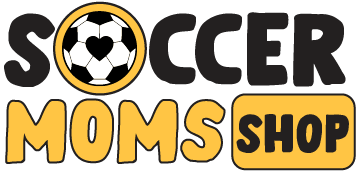You and your child’s coach are not on oppositive sides of the field or court. For the sake of your child, you should be partnering and working together in order to give your child a positive youth sports experience.
You are not enemies or competitors. You are partners. I will say it again: Youare Partners.
Today’s guest post by Kyle Ohman talks about how you and your child’s coach can begin to work on that partnership.
Regardless of personalities, every coach and parent should have one thing in common that they really care about, and that is the child. Yes, the coach’s first responsibility is the team as a whole, but they should still be invested in each of their players individually, and most good coaches are.
Unfortunately, we have all seen the ugly confrontations between coaches and parents about playing time, coaching style, etc. and it is never pretty. So how do parents and coaches not only avoid this, but also partner together to really help the child–because that is what it is really about?
I have a few ideas of how this can be done.
Make a Realistic Evaluation
A conflict between parents and coaches is usually about a child’s playing time. It is natural for a parent to want his child to excel, get more minutes, and shots, and sometimes a child does deserve more playing time. However, a lot of the time the parent doesn’t have a realistic view of his child’s skill level.
So, the first thing a parent needs to do is realistically evaluate her child’s skill level. Once this is done, you can help your child improve and work towards their goals of playing more or having a bigger role on the team.
This is also great for the child, because it allows her to work for something that she wants and will help teach her the valuable life lesson of work. It also allows you to help her accomplish it rather than complaining about the coach and putting all the blame on him for not giving more playing time.
It is important that coaches have an open line of communication with players and parents. Not every topic should be open for discussion, but there needs to be effective communication. If a coach has to consistently keep explaining himself on every move he makes it will drive him insane.
So instead of asking the coach, “Why is my son/daughter not playing more?” Try, “What should my child be working on to earn more minutes?” This is constructive communication and will actually lead to results. It also leads to the next point of getting involved.
If Your Child Wants Help, Get Involved
Before we get into this point we need clarify that it must be the player that wants to get better, not just the parent pushing them. Yes, parents should help their sons or daughters stay committed if they love playing a sport, but if it is simply you trying to relive your sports dreams through your child, it isn’t going to turn out well in the long run.
However, if your child does love the game and does want to get better, get involved! You don’t have to be an expert either. Talk to the coach and see what drills or skills they should be working on, and then help them.
Maybe it is just rebounding for them, it might even just be a reminder to go work on ball handling (which can be done almost anywhere), but get involved. This is how you can help your child out, and also spend some quality time with them.
Conclusion
Sports are a great opportunity for kids to create lifelong memories and learn valuable lessons that they will take with them the rest of their life. If parents and coaches partner together, youth sports can be a positive and growing youth sports experience.
Source: https://jbmthinks.com
If you like this article, Follow us on FACEBOOK and INSTAGRAM and PINTEREST!

